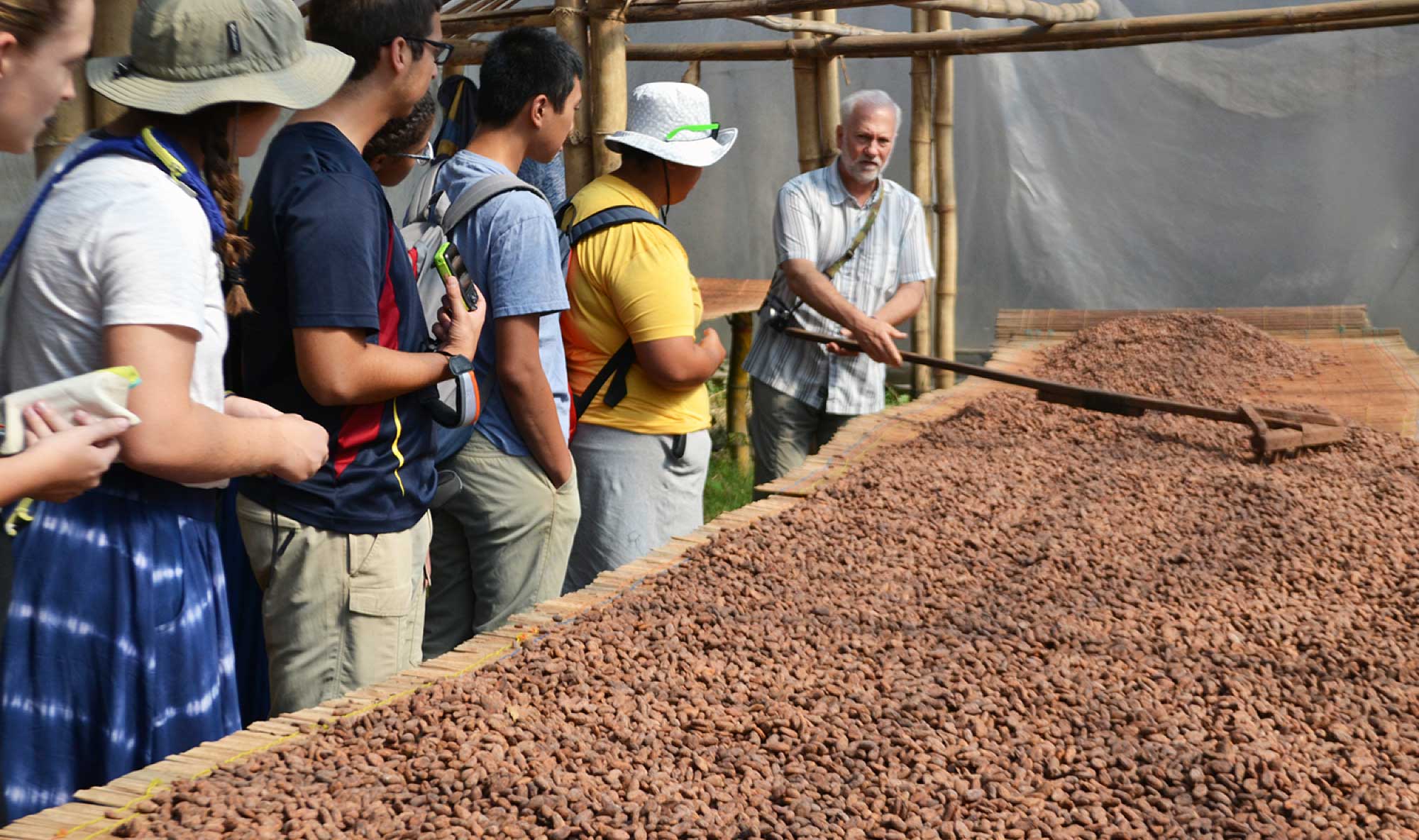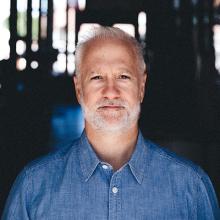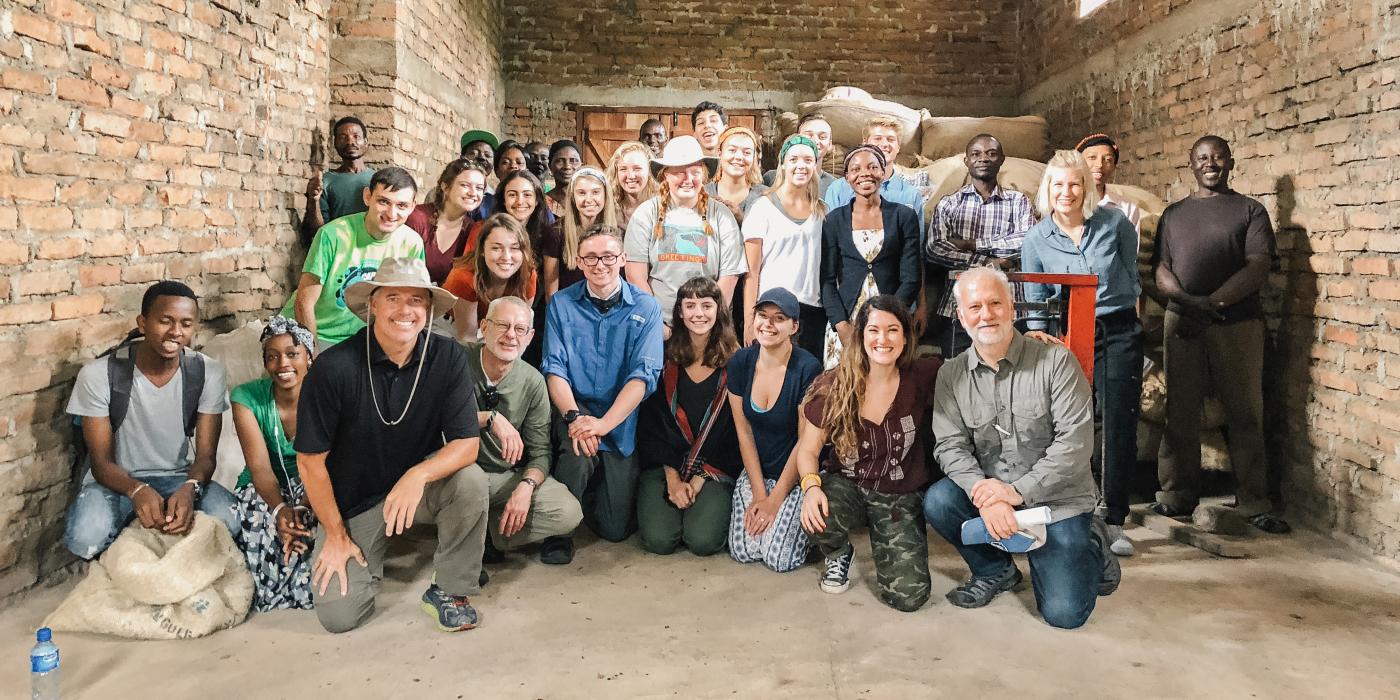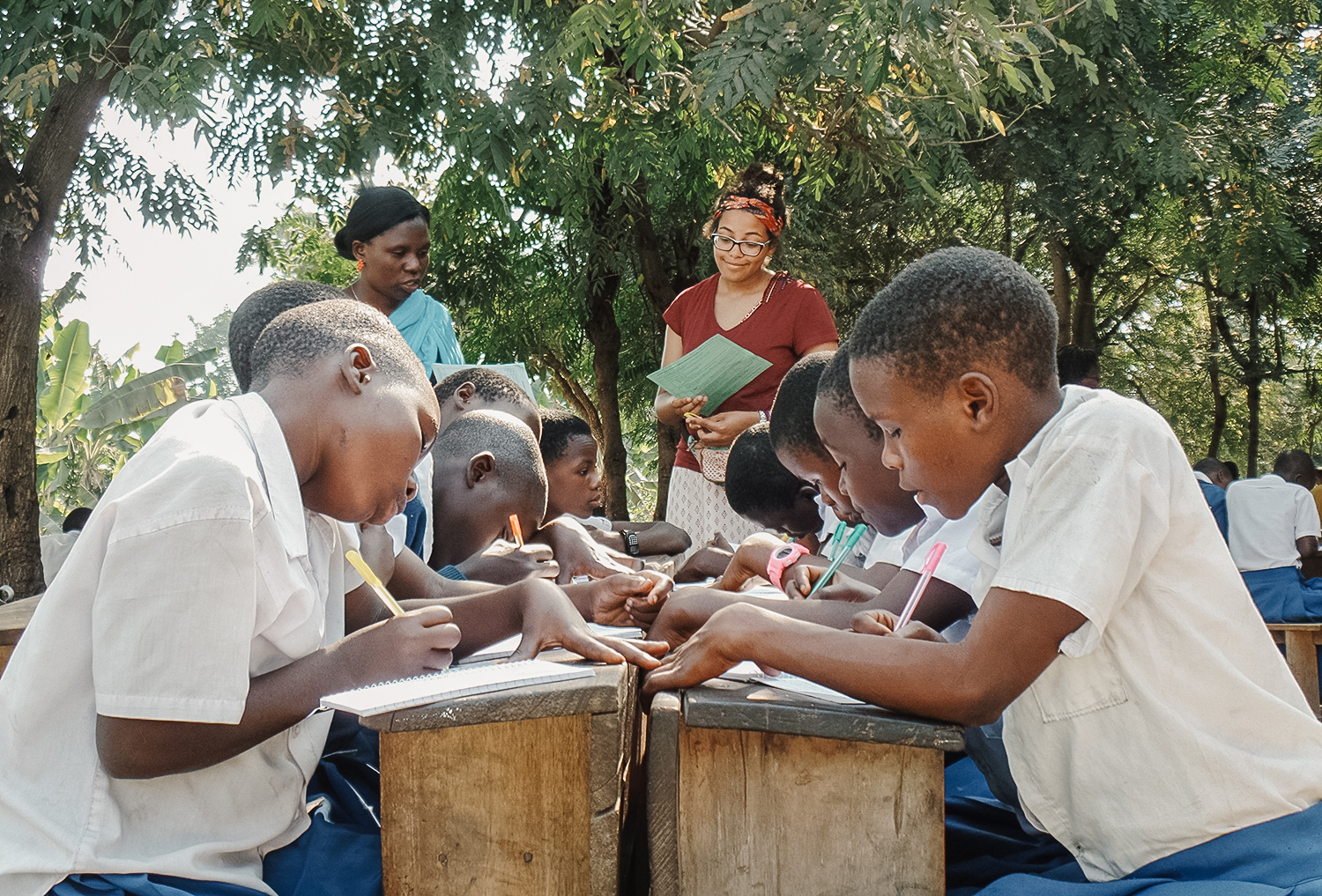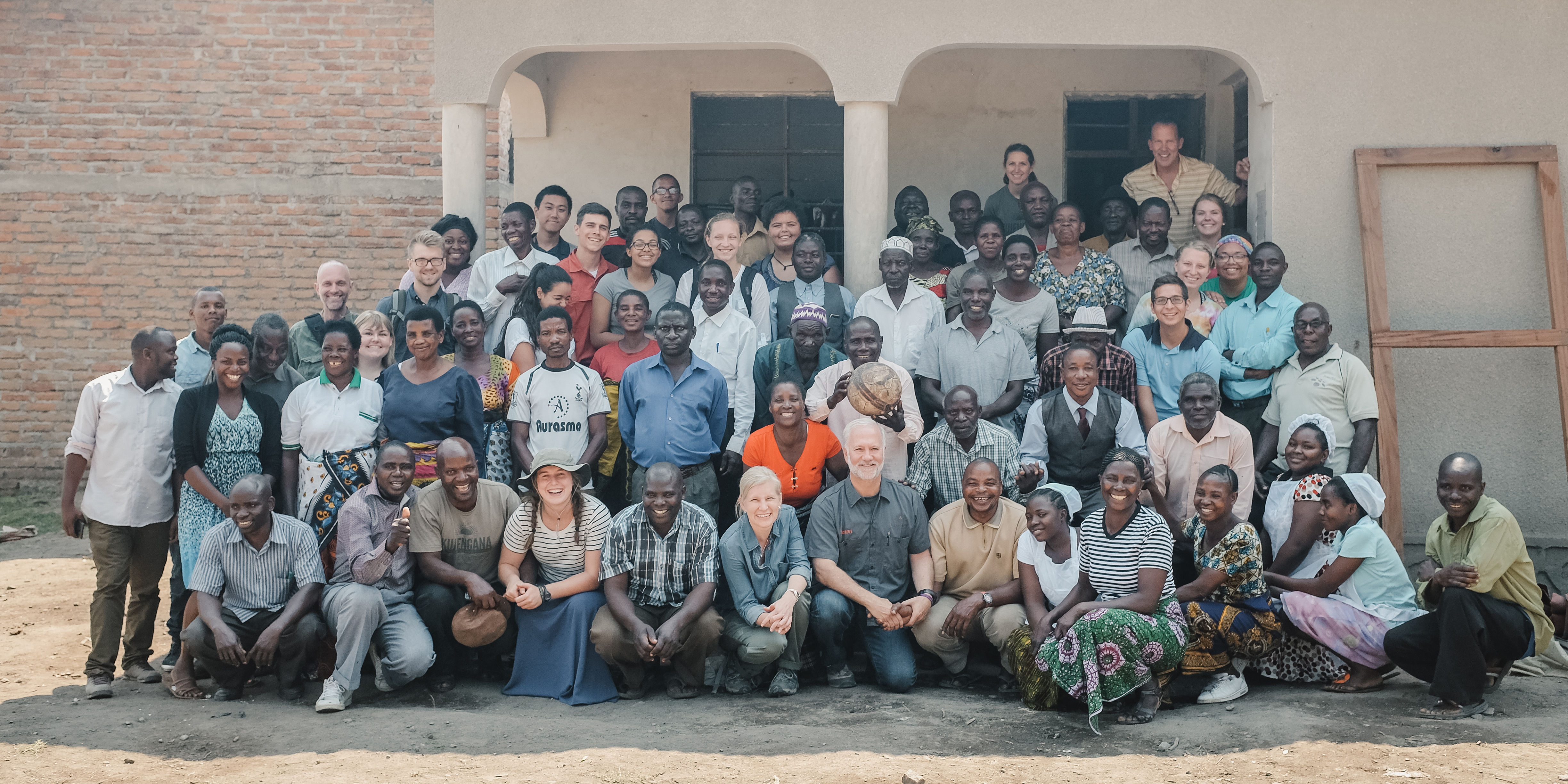Shawn Askinosie: Creating Cultural Exchange Through Chocolate
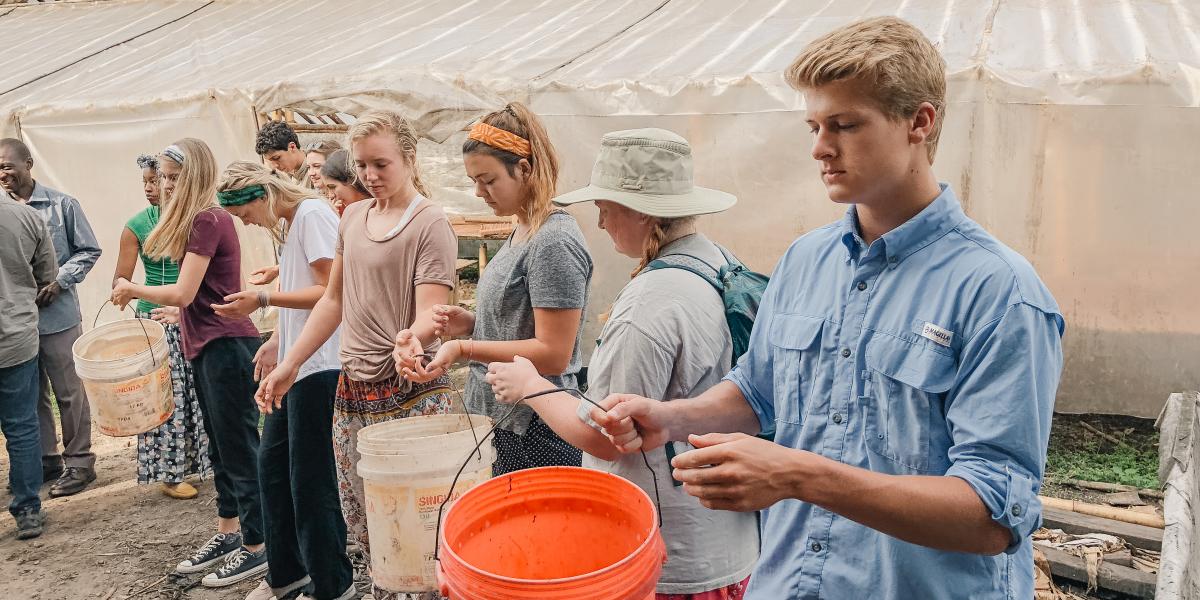
In 2006, Shawn Askinosie took his first trip to source cocoa beans from Ecuador for his new venture, Askinosie Chocolate. Today, he is once again preparing to travel to Ecuador—this time for his 45th origin trip.
A former criminal defense attorney, Askinosie founded one of the first bean-to-bar chocolate companies in the United States. He also coauthored a book, Meaningful Work: A Quest to Do Great Business, Find Your Calling, and Feed Your Soul, with his daughter, Lawren, about how companies can operate socially responsible business models.
Askinosie Chocolate has a threefold mission: to trade directly with the farmers who provide their cocoa beans, to educate students in the United States and abroad, and to make great chocolate.
How did you decide to start your company?
I was a criminal defense lawyer for 20 years, and I specialized in the most serious felony cases. After that amount of time, I was ready for a change. The challenge became finding what it was that I would do next….I landed on chocolate.
Photo: Courtesy Askinosie Chocolate
So, about 14 years ago, I started a bean-to-bar chocolate factory in Missouri and I quit my law practice. I started this company at the beginning of the bean-to-bar movement in the United States. There were only a couple of chocolate companies starting at the same time we were, and now, there’s a huge wave of chocolate makers around the country and around the world.
Can you explain more about the threefold mission of Askinosie Chocolate?
When I started the company, I knew it would stay small. We have only 17 full-time employees. There would be three vocations. One is to make great chocolate, and the second is to work directly with farmers who grow cocoa beans. The third vocation, which also began on day one of the business, is to work with students in the neighborhood of our chocolate factory.
What do you mean when you talk about direct trade with the farmers?
Direct trade can mean different things to different people, but for us, it means that we travel. Every year, I travel to the locations where we’re buying the cocoa beans to meet with farmers and look at the crop of cocoa beans. My next trip to meet with farmers will be my 45th origin trip since I started the company. Right now, we [source cocoa] from four places: the Philippines, [two locations in] Ecuador, including the Amazon, and Tanzania.
It’s not just going to meet with the farmers—we also share profits with them. I help them open bank accounts, and this eliminates the layers of supply chain that in some cases take advantage of farmers. We open our books to them in their language. So, for example, when we go to Tanzania, our financials are in Swahili, and it’s a way for them to understand our profit-share calculation.
Working with farmers is a very personal thing to me. I knew from the beginning that I wanted to work with farmers. I felt really strongly about this because I’m from Missouri and grew up here, and I spent a lot of time on my grandparents’ farm, which was very close to where I grew up.
They had dairy cows and chickens in a garden, and they weren’t highly educated people. They’re gone now, but they really remain icons for me. When I’m with the farmers, I feel like I’m honoring my grandparents and, in a sense, I’m with them when I’m with these farmers.
Tell us about how the business engages with local students in Missouri.
We intentionally located this business in a revitalizing part of our community. When I started the business 14 years ago, our largest homeless shelter was a block away. So, I wanted to engage the kids of the neighborhood in our business, because I knew that there were 80 kids a night in that shelter. We started the program called “Chocolate University” in the nearby elementary school. We started with the fifth grade, and we’ve been doing it every year since then.
the farmers who grow cocoa beans for Askinosie Chocolate’s products.
Photo: Courtesy Askinosie Chocolate
About 4 years ago, we started a middle school summer school program called “Summer Explorers,” and that’s an intensive monthlong [program] where kids can actually get hands-on experience making chocolate and learning about our business.
The one that takes the most amount of my time is our Chocolate University high school program, which is in its 10th year. We take [applications from] juniors and seniors in high school in our county and two neighboring counties in southwest Missouri. We have a scholarship program for 15 high school students, eight of whom are on full scholarship. We also have one college student from Drury University who is funded by the university. We raised the money for that program from donors around the country who share our passion that this experience can change students’ lives.
We meet with them five or six times during the spring semester. Then, in the summer, they spend almost a week on the Drury University campus, getting to know each other in the dorms. They learn about our business and our profit-sharing model. They learn a little bit about Tanzania—the language, culture, and history. They continue to work on what we’ll be doing when we’re there [on an origin trip]. Then they go home and pack, meet me at the airport, and we go to Tanzania. We take about four other adult travelers. They are in Tanzania for about 11 days.
That sounds like an incredible opportunity for students. What have been some of the outcomes in the community?
This [program] has grown so much that within the last year, we became our own 501(c)(3) [nonprofit]. We call it the Chocolate University Foundation because we do a lot of other community development work that’s not directly related to Chocolate University, but it’s indirectly related because we use it as a teaching tool.
For example, we’ve had school lunch programs in Tanzania for a long time. When our students are there, they get to see that in action. Then we also have an after-school program in Tanzania called “Empowered Girls.” A few years ago, we started another program called “Enlightened Boys,” and now, we have six clubs in three different schools near the village where we buy and source cocoa beans.
The most recent thing we’ve done is open a preschool in a village in Tanzania for 300 kids. The farmers had been wanting to do this for a long time. There is no early childhood education in the village.
Our [high school] students will then work on various projects in that preschool when they’re there this coming July, along with working on those other after-school programs that I mentioned. We’ve had almost 7,000 students go through or be touched by these programs in Tanzania or here in Springfield, Missouri, since the inception [of Chocolate University].
after-school programs in villages close to where Askinosie Chocolate sources its cocoa beans.
Photo: Courtesy Askinosie Chocolate
What makes the high school program and experience in Tanzania so significant for Chocolate University participants?
The one thing that I think that really stands out is that when students [arrive in Tanzania], they are immediately greeted and treated as if they’re members of the family, because I’ve been doing business with these same farmers for 10 years. They trust me and the people in my company. So it’s a very, very unusual and unique experience for students, because they have this chance to parachute into a really intimate setting and situation that they might not otherwise ever have the chance to experience.
They spend a lot of time with [the Tanzanian] farmers and students. Some of these students have never been outside of Missouri. I’m on the selection committee that interviews [applicants]. When you ask students, ‘Why do you want to be part of this program?’ They’ll invariably say something like, ‘I want to help the people of Africa.’ Ultimately, if these students are selected, I tell them at orientation: ‘Guess what? Your job is not to help the people of Africa. Your job is to change your heart. Your job is to be transformed, if you’ll let it happen.’
Why did you include an education component in your company’s mission?
The genesis for working with farmers was really my grandparents, and the beginning point for me in working with students was a teacher [I had] when I was in the 6th grade. His name was Mr. Elmore, and he was very kind to me at a very difficult time in my life. During that time, my dad was diagnosed with lung cancer. Mr. Elmore didn’t do anything fancy, but he just was encouraging to me. He would write notes on my homework papers. He was a very kind person, and the way he treated me, I can trace that all the way to this Chocolate University program.
Where did your dedication to global engagement come from?
I knew that we had a very unique situation here because of all the traveling that I had done as a young person. Not just living in Japan [as part of an exchange program with Missouri State], but I also worked for the American Embassy Refugee Section [during] my freshman year in college as a volunteer with the International Rescue Committee (IRC). At that time, the IRC staffed the refugee section of the embassy. I knew that I could help students stretch if they were in situations they weren’t entirely comfortable [with].
Photo: Courtesy Shawn Askinosie
I started traveling for cocoa beans even before I started this company. I didn’t even know what a cocoa tree was. I didn’t even know chocolate came from a cocoa bean. I started thinking about whether we could take students to [the places where we source our cocoa] because it’s the ultimate stretch.
All of their senses are engaged. Even if you’re a seasoned world traveler, this is a unique setting and with the most hospitable people that you would ever meet in your life. This is almost what I would call ‘radical hospitality.’ You can walk in there tomorrow, and the weight, the heaviness of the hospitality, would make you emotional almost immediately. I want students to experience that.
What does working with students have to do with chocolate?
It has absolutely nothing to do with chocolate. But then it does, because working with farmers and working with students is part of who we are as a collective, and [it] contributes to making great chocolate. I think companies and organizations have souls just like people. It all fits together. It’s important for businesses to understand that they can have an impact on education in their communities.
What lessons have you learned that would be relevant to the international education field?
All of our decisions that relate to outbound or inbound student experiences should begin with humility. I think it’s hard to go wrong when you start there. I don’t care what political environment we’re in, we cannot stop visiting each other and learning from each other and learning how to practice humility throughout our leadership experiences and our educational experiences.
As people think about program development, I also think that we need to be really careful about the way we measure the so-called ‘effectiveness’ of these programs and that we don’t get lost in outcomes and statistics. I’m fortunate to be in a situation where I have a for-profit company and a foundation with a board, so it’s a little bit easier for us to navigate the funding of these kinds of projects.
We have to redouble our efforts of educating our supervisors, funders, grantors, and communities. With the rise of nationalism, [international educators] are uniquely suited to educate their neighbors and communities about globalism, friendship, kinship, kindness, and mutuality.
One of the most important words that we use in our company is mutuality. Mutuality doesn’t mean, ‘I’m the teacher. You’re the student. I’m the provider. You’re the recipient.’ That’s not the way this works. Mutuality means we are shoulder to shoulder. This is the best way I know for the students to have an opportunity to learn this from our little 17-person company. That’s why I do it. •


